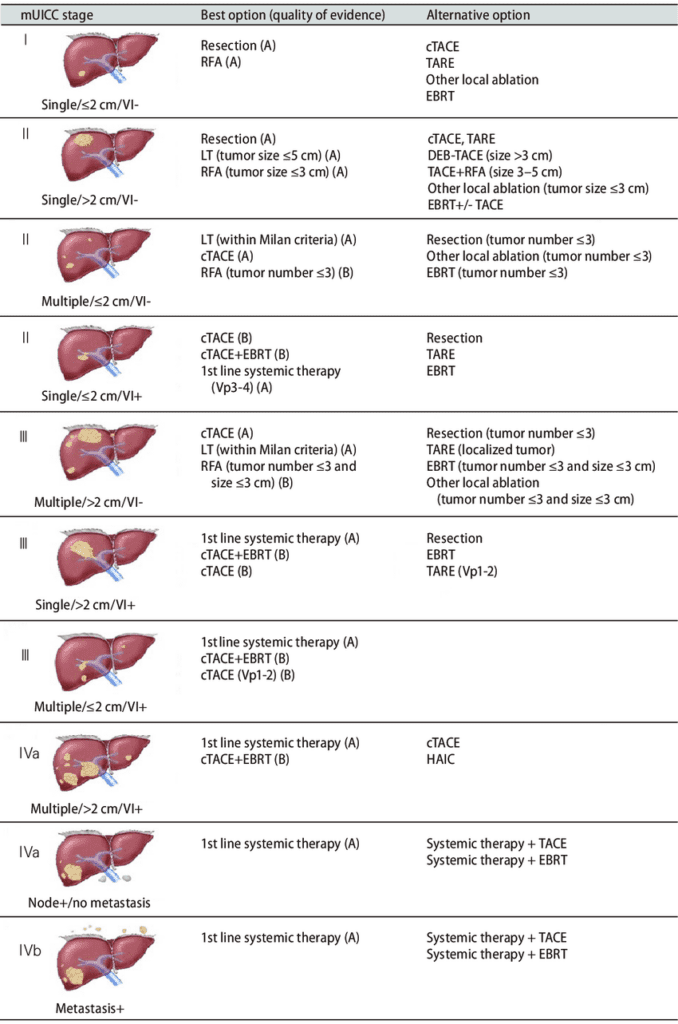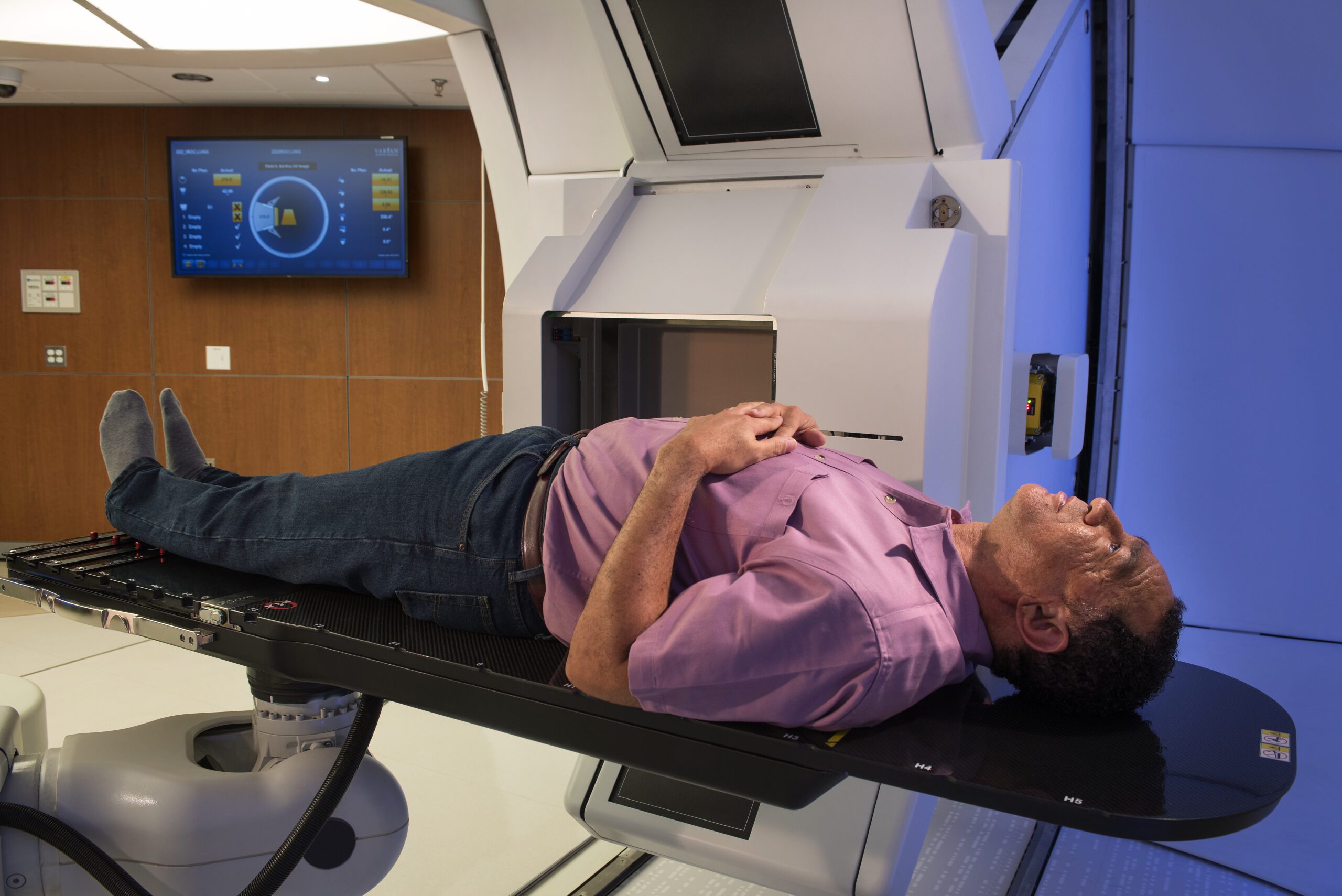
Hepatocellular carcinoma is prevalent in Asia, due to high incidence of viral hepatitis. Proton therapy has emerged as a powerful tool in patients who are not suitable for resection, or choose not for liver transplants.
In the Korean 2022 guidelines, external beam radiotherapy is either a primary or alternative option in patients with certain stages of liver cancer. Proton therapy may be useful as it spares more healthy liver.
- Precision Targeting: Proton therapy offers a more precise targeting of tumors compared to traditional radiation therapies. This precision is particularly beneficial for treating liver tumors, including hepatocellular carcinoma, as it allows for higher doses of radiation to be delivered to the cancer cells while minimizing damage to surrounding healthy liver tissue.
- Reduced Radiation to Healthy Tissues: Unlike conventional radiation therapies, proton therapy has the ability to deposit the majority of its energy precisely at the tumor site and release minimal radiation beyond the target area. This characteristic is crucial when dealing with liver cancer, where minimizing damage to the surrounding healthy liver tissue is essential to preserve overall liver function.
- Treatment of Challenging Tumor Locations: Proton therapy is especially advantageous for treating tumors located near critical structures or sensitive organs. In the case of HCC, where the liver is adjacent to vital structures, such as the stomach, intestines, and spinal cord, proton therapy allows for a more focused treatment, reducing the risk of damaging these neighboring structures.
- Reduced Long-Term Side Effects: The precision of proton therapy contributes to fewer long-term side effects compared to traditional radiation treatments. This is significant in the context of hepatocellular carcinoma, as it may allow patients to maintain better liver function and overall quality of life during and after treatment.
- Suitability for Specific Patient Profiles: Proton therapy may be particularly suitable for certain patients with hepatocellular carcinoma, such as those with larger tumors or tumors located in challenging anatomical locations. Individualized treatment plans can be developed to optimize the benefits of proton therapy for each patient.
It’s important to note that while proton therapy offers advantages, its availability may be limited, and decisions about the most appropriate treatment for hepatocellular carcinoma should be made based on a comprehensive evaluation by a multidisciplinary team of healthcare professionals.

